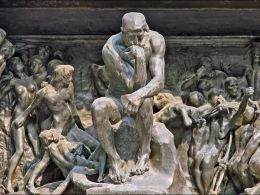
Code Named As Executor, a First in Legal History
Manhattan startup, Blockchain Apparatus, today introduced the world to the latest innovations to spring forth from the Bitcoin ecosystem. And their new offerings are changing how people manage bequeathing their estates.
Blockchain Apparatus is one of several ‘Bitcoin 2.0’ startups incubated by Blockchain Technologies Corp.
The underlying function of Blockchain Apparatus is as a legal services enterprise. In the areas of property and trusts, among others, the technology allows for the creation of what are often deemed ‘smart contracts’. For example, a multi-stage ‘blockchain will’ releases an inheritance to someone’s heirs as provable data points on the web. This is the first time in legal history that the administration of a will is handed over to a non-human. In this case, software code is the executor.
The company says that in the foreseeable future we will have a software/network combination which is the executor of the decedent's last will and testament. Bitcoin 2.0 protocols are used to make actual dispositions and disbursements of the assets in an estate, and are able to do so while taking into consideration many facts which are indeterminate at the time of the will’s creation, similar to traditional trust frameworks.
According to Blockchain Technologies Corp’s legal counsel, Eric Dixon, the blockchain will or broader blockchain document “…goes to the heart of most family and surrogates' court litigation. It provides better evidence of the actual intent, at a definable, fixed time, of the person making the will or the ‘testator’ in legal parlance.”
Most will-related litigation involves challenges to the genuineness of a will. There are also challenges based on the interpretation of a will and commonly to exploit vagueness or unaddressed issues, as well as competence of a testator.
“The blockchain cannot eliminate these legal challenges or the factual basis for them,” says Dixon.
That is important because a common attack on the smart contract concept is premised on the fear that technology (through the blockchain) would remove a person's ‘due process right’ to have his or her day in court.
“What the blockchain can do,” continued Dixon, “is make it much easier for a genuine will to be upheld, for a bogus challenge to be dismissed, and for courts to come to factual findings much more quickly.”
The blockchain will thus offers an improvement in the quality and admissibility of evidence, moving such litigation from a process requiring some degree of trust in old documents, uncertain signatures, uncertain notarizations and uncertainty over the existence of any subsequent documents (i.e., revised wills, revoked wills and so on). The replacement is a consensus-based, decentralized system where wills (and other documents) are deposited, where the identity of the depositor, the time of the deposit and the “original state” of the document are all confirmed and preserved.
The company considers the “original state” feature crucial, because the blockchain's consensus-based security means old data is never lost or overwritten.
“This is a fantastic protection against fraud, false statements and other malfeasance,’ offered Dixon.“
Yet the technology allows for revisions, with each revision being stored in its own original state. It enhances the ability for swift justice without compromising legal due process. It offers a way to establish the genuineness of documentary evidence and protect evidence and data from being altered, hidden or destroyed.
“The technology makes it easier to prove the existence of a will or other document, because the blockchain preserves the record of its creation and submission to the blockchain. No more do you have to guess whether a will that ‘just shows up’ was signed five or ten years ago. The blockchain gives you solid and better evidence.”
“But if you’re a crook, you’re going to hate our technology. It’s going to be really hard to fudge things on the blockchain.”
Related News





